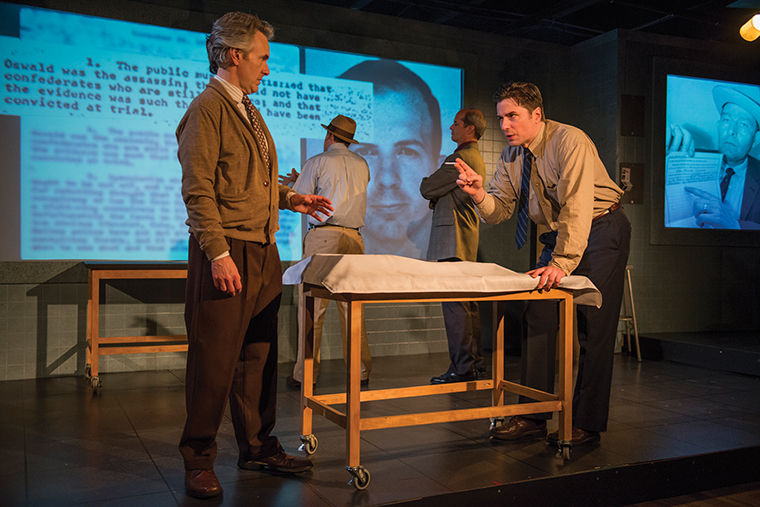‘Assassination Theater’ educates and entertains
September 28, 2015
Author, journalist, and playwright Hillel Levin spent seven years extensively researching declassified documents pertaining to the 1963 assassination of former President John F. Kennedy to piece together the script of “Assassination Theater,” a new play showing at the Museum of Broadcast Communications, 360 N. State St., until Nov. 8.
The uncertainties surrounding Kennedy’s death have captured the imagination of the American public for decades, according to Andrew Wilson, an adjunct professor in the Humanities, History & Social Sciences Department.
“This is a remarkable event,” he said. “The assassination of the president of the United States, in broad daylight, witnessed by hundreds of people.”
There have been countless books, films and documentaries released pertaining to the Kennedy assassination. Most notably, director Oliver Stone’s 1991 film “JFK” created so much public outcry that it led Congress to pass the President John F. Kennedy Assassination Records Collection Act of 1992, mandating that previously classified documents be revealed, according to Kevin Christopher Fox, the play’s director.
“[‘Assassination Theater’] is not like other material on JFK. This is live. It’s like interacting with history, and it’s immediate,” Fox said.
According to Levin, the show’s dialogue was written using actual interrogation transcripts and personal memos declassified by the JFK Records Act. Additionally, photocopies of the documents, often with hand-written edits, are projected onto a screen behind the actors as supplements, Fox added.
“If you’re interested, you can see what we’re talking about,” Levin said. “[For instance,] you can see Gerald Ford’s pencil marks where he altered the location of a wound.”
The show has been held to the standard of journalistic integrity but is also designed to be as enthralling as any mainstream crime thriller, Fox said. To moderate the pace and provide insight, actors have been cast to play both Hillel Levin and FBI agent Zack Shelton, who routinely make sly commentary and think aloud about the proceedings of the historical events depicted.
“Assassination Theater” also examines a hypothesis which is slightly different than those presented in previous depictions, Levin said. The extensive documents made available by the JFK Records Act and the years he spent going through them have been tremendously beneficial to uncovering the truth, he said. “JFK” was based more broadly on speculation and thrust much of the blame onto the United States government itself, Levin added. However, he is convinced that Chicago’s mob, threatened by Bobby Kennedy’s initiative to crack down on organized crime, plotted the assassination. According to Levin, the subsequent government cover-up was an attempt to prevent institutional embarrassment in having failed to prevent the event in the first place.
Still, disagreements on the topic are ongoing.
“To date, I believe the theory of the lone gunman—Lee Harvey Oswald as the sole assassin—is the best explanation,” Wilson said.
Whatever circumstances led to the event, it was a traumatic turn in American history, which will never leave the public consciousness, Fox said. “People cared about this man; People’s imaginations were captured by this man. This man’s head was destroyed in front of everybody. His wife crawled behind him to pick up a piece of his head. It was brutal—the violence and atrocity of that will never be forgotten.”
“Assassination Theater” will run Wednesday through Sunday at The Museum of Broadcast Communications until Nov. 8. Tickets are $49, $39 for students. Please visit www.assassinationtheater.com for more information. To learn more about Hillel Levin, visit www.hillellevin.com.








